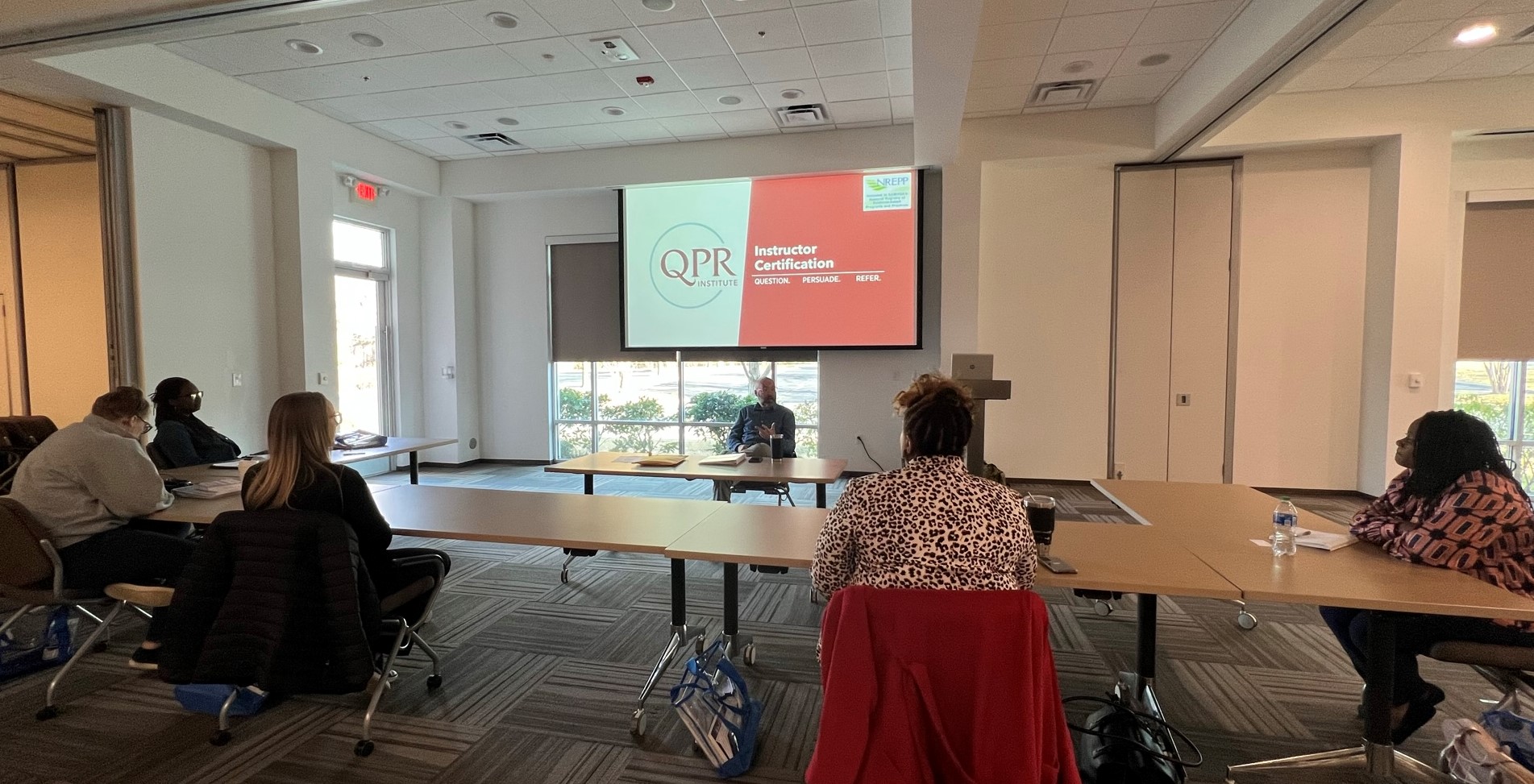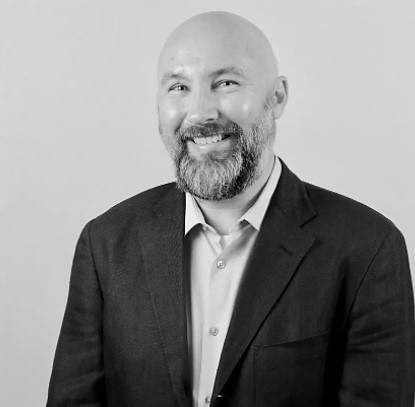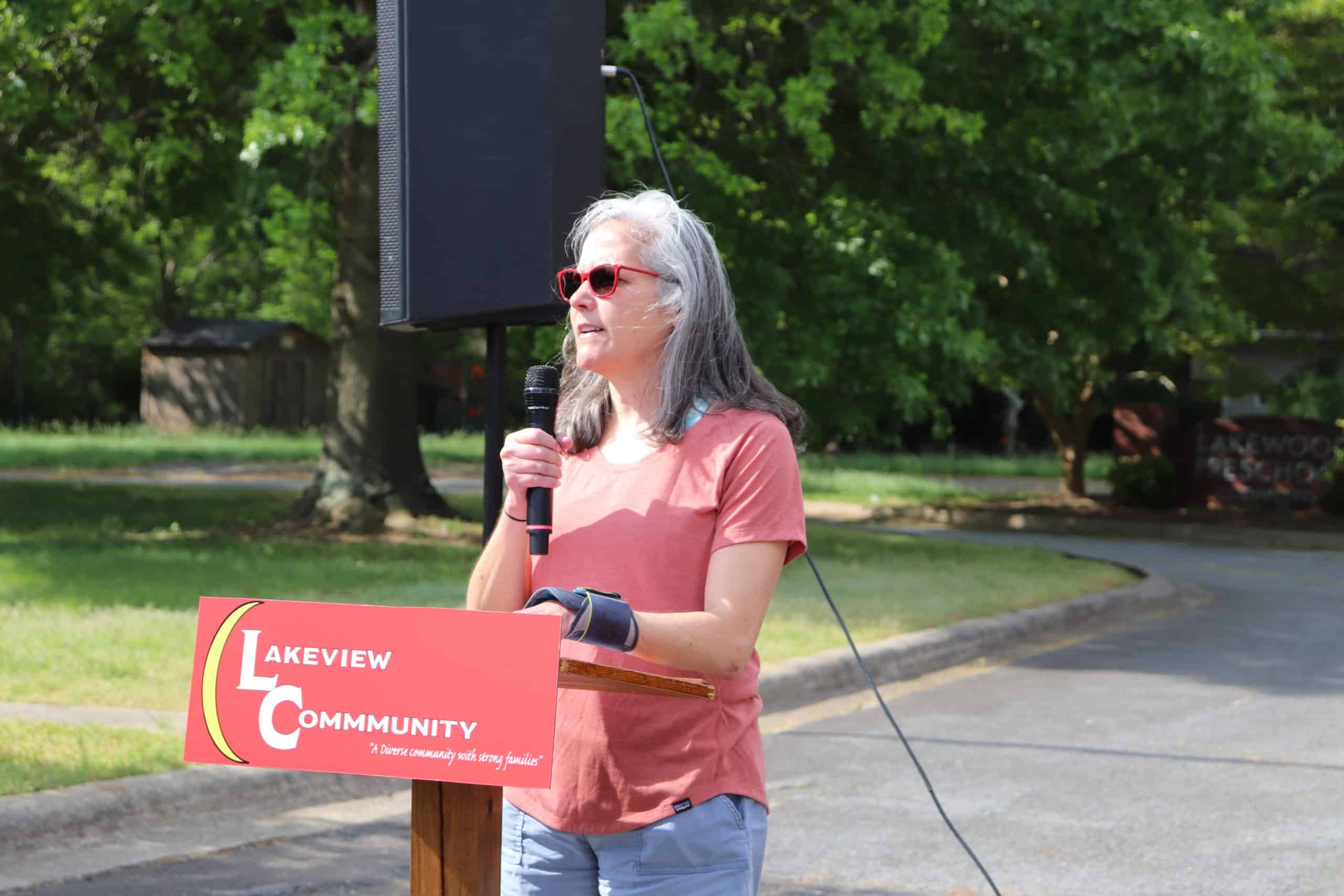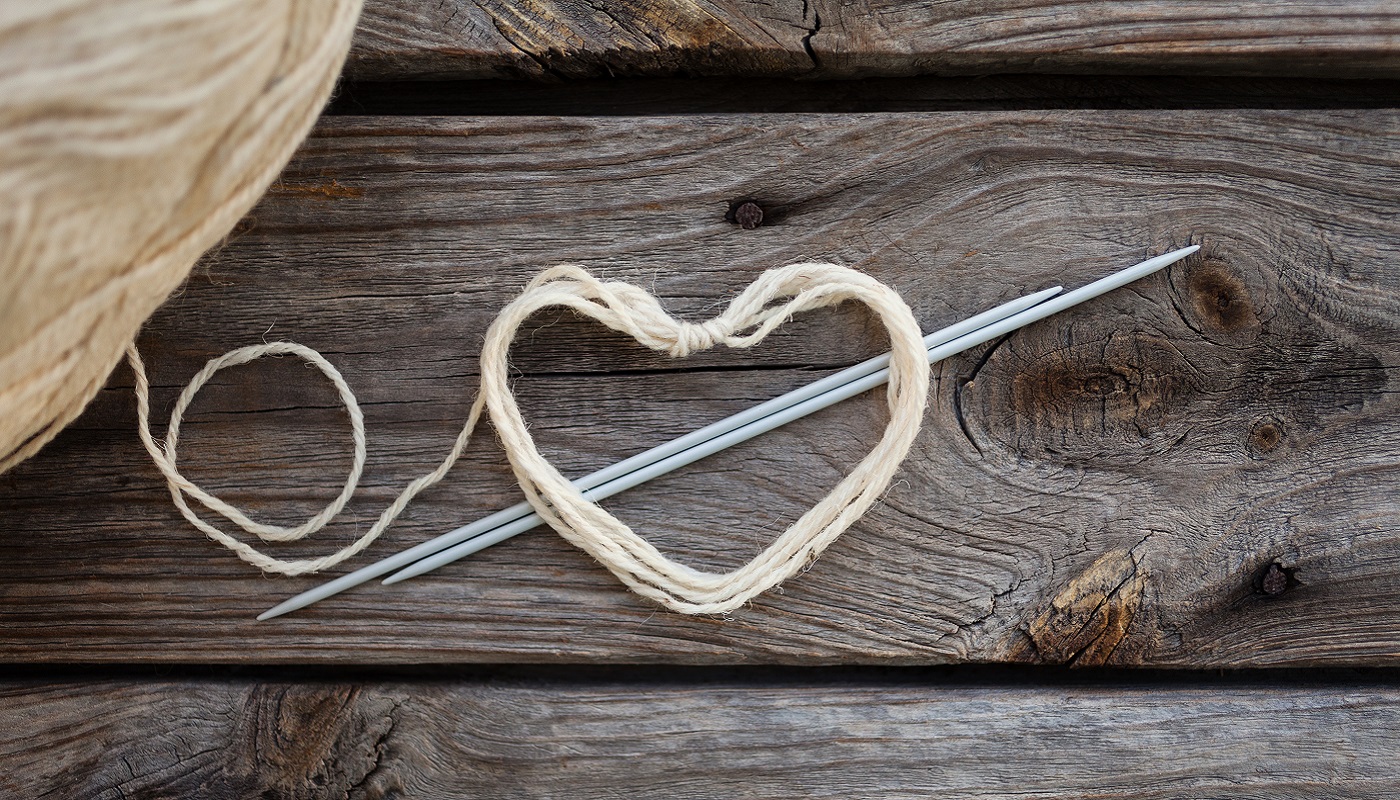
A Conversation About Mental Health
By Taylor Mabrey, Content Manager

Kevin Markle is the Director of Education and Advocacy at Mental Health America of Central Carolinas (MHA). He holds a BA in Psychology and Child and Adolescent psychology and is a Qualified Mental Health Professional. He has dedicated 23+ years of experience in supporting adults and youth in overcoming personal struggles with their mental health and champions’ efforts for access to resources for everyone. Currently, he works with community partners and individuals to provide educational opportunities through a group of instructors through MHA. Kevin is a QPR Master Suicide prevention trainer, a lead instructor in Mental Health First Aid curricula and is a certified NCI trainer with the Crisis Prevention Institute.
United Way of Greater Charlotte’s Content Manager, Taylor Mabrey, sat down with Kevin to learn about his experience providing suicide prevention training and the importance of breaking the stigma around mental health.
Tell me about yourself and your role at MHA.
I’ve been on staff here at MHA for over a little over 13 years. Prior to stepping into the director role, I was our Youth Engagement Specialist, where I worked very closely with some youth-serving programs. I’ve got about 25 years in the mental health space in the world. I’ve worked just about every position imaginable. My personal goal was always really to just help people, be a good listener and be a support for folks who maybe don’t have that.
In my current position, I do a lot with suicide prevention. That’s a personal mission along with the mission of what we do as an organization. At MHA, I’ve been doing QPR Suicide Prevention Training for a little over 11 years. I was always very involved in suicide loss walks and helping support people, particularly families who have been impacted by death by suicide, but within those 11 years, I was able to become a Master Trainer with the QPR Institute and that allows me to take what I’ve learned and help other trainers teach people how to deliver the training.
What is QPR Training?
QPR stands for Question, Persuade, Refer. It’s a best practice Suicide Prevention Training. It’s not a coincidence that QPR has very similar acronyms to CPR; the lifesaving skills are there and the concepts are there for everyday people to know what to look for and how to have that conversation.
QPR is not counseling, it’s not therapy, it’s not really clinical in nature. It really is designed to teach people. What does it look like? How big of an impact is suicide in our communities? We start by figuring out how to ask that hard question. Are you thinking of suicide? The ‘P’ is Persuade, so how do we persuade somebody and say, I see you, I’m going to be here for you, I love you, I value you. I will help you any way that I can. And the ‘R’ stands for refer. And where do we refer? What does that process look like? It’s very individualistic.
Typically, someone is struggling in silence. So how do we break through that? We need the ability to approach it in a very meaningful, empathetic way. And that’s what we want in QPR. We spend a lot of time on theory and concept but a big part of what instructors need to understand, and often I try to infuse this when I teach is, you don’t have to have all the answers. All we really are trying to do is have that courage to approach that friend, family member or coworker and say, I see you and then be very direct with that question of are you having thoughts of suicide? Because once we ask that question, and someone says yes or no, it’s like a breath of air for that person who’s struggling, because now it’s in the open. Then what do we do with that? How do we get help? Or where do we go – together? I think that’s the key part of what I like about QPR.
What is the benefit of going through QPR Training?
Like CPR, QPR is designed to be a saturation training, which means we want everybody trained, where the goal is zero suicides. Realistically, that’s a hard goal to achieve. But we’re certainly going to try our best to do that. So we’re training folks, we’re giving them awareness skills and we try to also build in those resources while we train so people know about the National Suicide Prevention Hotline, the 988 Lifeline, and we give them local resources connecting them to organizations.
A big part of QPR training is breaking the stigma around mental health. We want our participants to really understand that it’s okay to talk about these things, and then use the awareness and recognition skills to have the hard conversations.
The more people who are trained with this awareness concept can help step in and, I tell people all the time, you don’t have to do this by yourself. Oftentimes, you as a QPR training individual may have another friend who comes to you and is like, ‘Hey, I’m really worried about my spouse.’ If I have some training, I can guide them and say, hey, you know, they might be having thoughts of suicide. Is that something that you think they’re going through? That friend might say, ‘maybe, I don’t know’ or ‘that’s scary.’ As QPR gatekeepers, we can help provide them with that support. We really want to be honest and direct, because this is a health-related emergency and if we don’t do something, we might lose somebody.
That’s really the goal that we have and it is very much part of our mission at MHA to help bring these awareness trainings to everybody (age 14 and older). We’re very proud that we are able to offer our QPR trainings for free to the community, because we don’t want barriers for people to get this information.
Can you talk a little bit about the stigma around mental health and wellness?
I think a big part of the stigma is we just don’t have good education, or, you know, appropriate literacy to talk about mental health and wellness as a healthcare space, but I think we’re getting better for sure. But that lack of education around it leads to stigma, when we don’t really know what to call it.
People who are struggling with mental health – it’s common – about one in four American adults will experience some mental health crisis in their lifetime. With youth, those numbers are a little bit more; about 30% to 35% of youth are struggling with a mental health condition, diagnosed or undiagnosed. We don’t talk about it enough. We don’t really have good pathways for people to say they are feeling a certain way and they don’t necessarily know where to go. Not everybody needs to go to a therapist or clinician, although I think that’s a great place to start. What we see is there’s a lag between onset of symptoms and people actually getting help. If someone breaks their arm and they wait two weeks to see a doctor, it would exponentially be a bigger problem for them, right? With mental health, people don’t openly come out and say, ‘I need help,’ or ‘my emotions are getting the best of me’ or ‘anxiety is preventing me from going to work or preventing me from engaging in relationships.’ So how do we tackle it correctly and how do we talk openly about it? I always try this myself to just be open and honest and kind of direct like, ‘Hey, these are the things that maybe I’m struggling with…’
How can we make it okay to have that conversation? Oftentimes people need another person to step in and say, ‘Hey, I noticed, (fill in the blank) and I am here for you. We don’t have to have all the answers. But what can we do today?’ That’s a great starting point, I think, for a lot of the stigma or a lot of those conversations that happen.
Can you elaborate on youth and mental health challenges?
Sure, and it is not just youth, we see a spike in people aged 14 to 24 – death by suicide is the third leading cause of death for that age group. That is not often talked about and not many people know that. Usually when I share that with folks, it’s a big eye opener. I’m a parent, so that’s scary. Now causation for that: think about being 15-16 years old, you’ve got puberty, social determinants of health, you’re navigating school pressures at home, peer pressure, there’s a lot of things going on that factor into, you know, someone struggling with their mental health in that age group.
We’ve done a lot of QPR trainings in high schools, training the students, because who do you go to? You go to your friends. But we need young people to have trusted adults in their life. So if you think about what I said about saturation training, I can train a group of students, but then I also need to train the coaches, teachers, parents and other adults in the community. If all of those folks have QPR training, the better the outcome is that someone’s going to catch on to what someone might be going through and can ask the hard questions.
I’m 45 years old and I didn’t have a suicide prevention training when I was in high school. I’ve been doing this for a long time, and you and I wouldn’t have had this conversation 10 years ago. I think the stigma is getting a little more transparent and people are starting to see that we need to have these conversations. I think that’s a win, I think the younger generation is much more apt to be talking about it. As an adult living in today’s world, I really want to make it so it’s okay for them to talk about these things. But we need to be prepared to support them. We need to be prepared to say, ‘I’m really glad you’re talking about this,’ and help connect them with resources to help.
Why is it important to take care of your mental health?
Self-care – we have all heard that term – is not selfish. In fact, it is necessary. We’ve all heard the expression you can’t pour from an empty cup, right? So if I’m not taking care of myself, I’m not taking care of my whole health. How good am I for my kids? How good am I as a friend, as a coworker or a husband? Self-care is not only important, it’s necessary. I can’t say it any simpler. And we need to be reminded of that, myself included.
How do you take care of your mental health?
Self-care looks different for all of us, right? For me, it is connecting with nature, going on a walk. I’m an introvert, so I like to have downtime and I’m very fortunate that my wife knows that. If I had a rough day, I can just say, “Hey, I need 20 minutes,” and I’ll just take a walk with my dog. If I don’t do that, how am I showing up? Can I be 100% for my family? Probably not. But if I take that 20 minutes and get myself calm, back to where I need to be, it’s a win for everybody. I encourage everybody to find what it is that you need. And be intentional about it.
As a team here at Mental Health America, we take self-care and supporting each other very seriously, because we know the serious nature of it. If you’ve ever had a bad day, isn’t it great when someone says to you, “Hey, take a deep breath, let me help you with that project you’re working on, but let’s talk about what’s going on.” We feel seen, right? And sometimes we need other people to step into our lives and say, “It’s okay.” It’s okay to not be okay. But we’re not able to do that if we’re not taking care of ourselves.
Mental Health America of Central Carolinas is a United Way partner serving residents in Cabarrus County as part of the region’s impact strategy focused on mental wellness.




